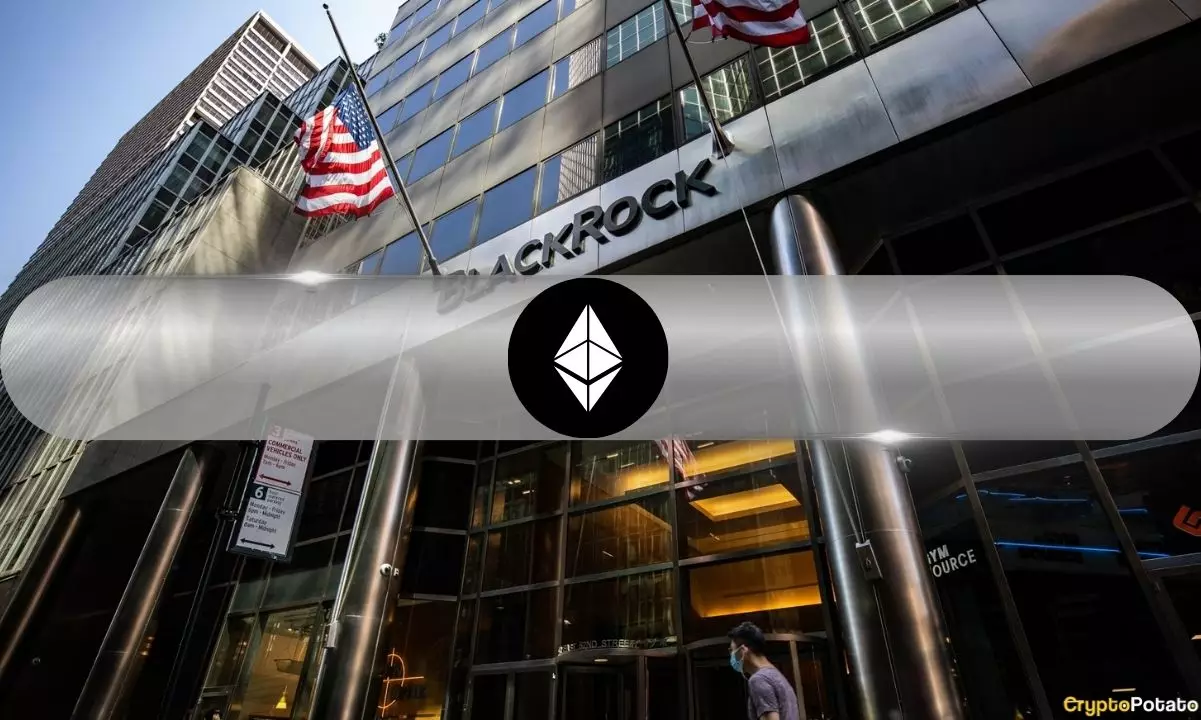The landscape of crypto and finance is rapidly shifting, and at the forefront of this transformation is Ethereum, which has just received a significant endorsement from one of the financial industry’s titans—BlackRock. As former Ethereum developer Eric Connor aptly stated, BlackRock’s recent move to tokenize its substantial $150 billion Treasury Trust market fund signifies an unparalleled milestone for Ethereum. This level of institutional commitment not only validates Ethereum’s utility but also sets the stage for a new era of digital assets being intertwined with traditional finance. In an industry where trust and stability are paramount, the backing of a well-respected firm like BlackRock cannot be underestimated. Their intention to introduce “DLT Shares” to track ownership via blockchain technology is a resounding affirmation of Ethereum’s capabilities, positioning it as the backbone for future financial innovations.
Tokenization: The Future is Now
BlackRock CEO Larry Fink’s bold assertion, claiming that “tokenization will revolutionize investing,” speaks volumes about the seismic shift occurring in financial markets. His perspective embodies a profound understanding of how blockchain can expedite transactions that currently burden the system with delays. The promise that trades, which traditionally take days, could be completed in mere seconds is not just a technical upgrade; it represents a fundamental reshaping of investment frameworks. By eliminating immobilized capital caused by settlement delays, tokenization could substantially enhance market liquidity and speed, propelling economic growth. Such innovations are not just theoretical musings; they are rapidly becoming a reality, primarily through the Ethereum blockchain, which now commands a whopping 56% of the market for real-world asset tokenization.
Institutional Confidence Rebuilding: The Ethereum Narrative
Despite current market conditions, where Ethereum’s price languishes at bear market lows, the fundamental developments present an optimistic outlook. Unlike the speculative investments that characterized earlier phases of crypto, the interest from institutions like BlackRock indicates a maturing market. The $162 million accumulated through BlackRock’s spot ETH ETF (ETHA) in just a few days demonstrates a growing confidence among major stakeholders that Ethereum is the chair at the table of innovation. Such faith is vital; it challenges the narrative of Ethereum being just another digital currency, categorizing it instead as an essential tool for modern financial transactions.
Market Dynamics and Future Possibilities
The juxtaposition of BlackRock’s substantial investments against Ethereum’s price stagnation raises critical questions about the market dynamics at play. Yes, Ethereum remains over 63% below its 2021 peak and has stuck around levels last seen in September 2023. Yet, it’s ludicrous to dismiss its long-term potential merely because of short-term volatility. The staggering $6.2 billion already tokenized on the Ethereum network highlights the substantial value embedded in this ecosystem. It becomes increasingly clear that while market conditions may seem dire, the structural underpinnings of Ethereum are assembling a foundation for a potential resurgence that could redefine its standing in global finance.
A Call to Embrace Change
Adopting a center-right wing liberalism lens, one cannot help but perceive the ongoing developments with cautious optimism. The world of finance must collectively embrace tokenization—not as a threat to existing structures but as an opportunity to create a more efficient, accessible, and transparent financial system. The advancements led by Ethereum, bolstered by institutional interests, serve as a clarion call for all stakeholders involved. Those who fail to adapt and recognize the shifting paradigm may find themselves increasingly obsolete in a rapidly evolving economic landscape. As more investors and institutions recognize the potential pitfalls of lagging behind, the path forward for Ethereum appears brighter than ever. The conversation around the future of Ethereum must shift from skepticism to robust acknowledgement, as it stands on the precipice of potentially redefining what finance looks like in the digital age.

